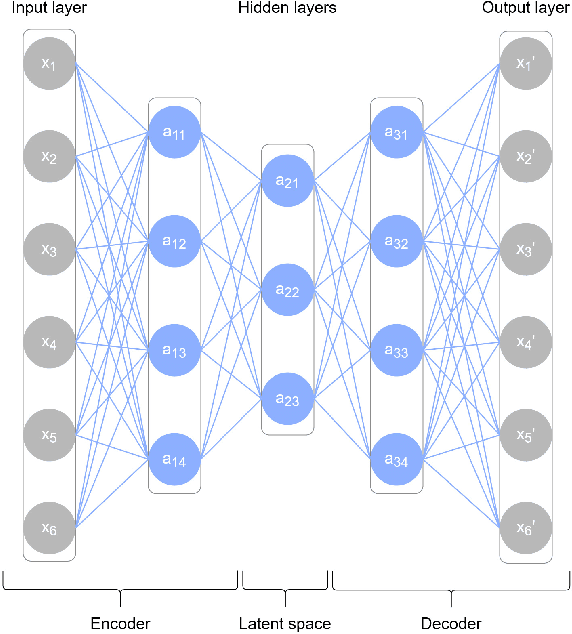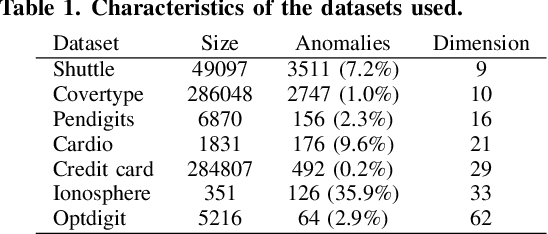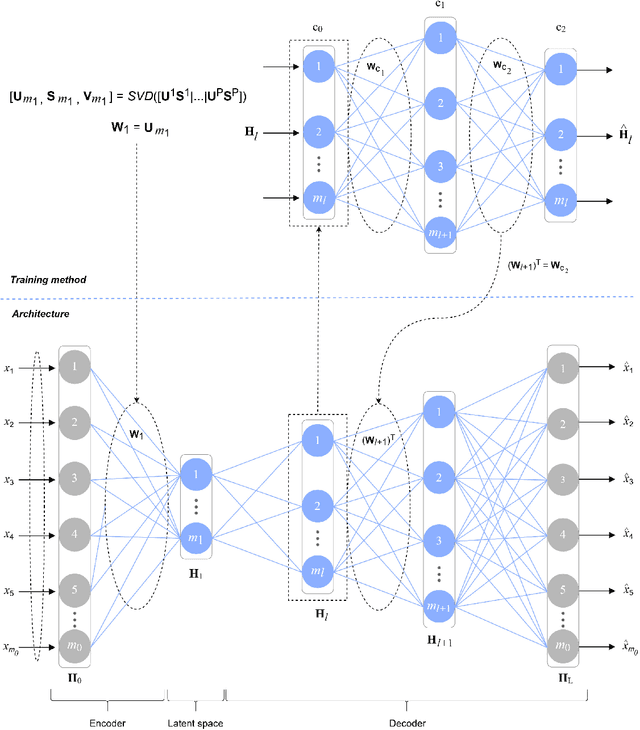Oscar Romero-Fontenla
Fast Deep Autoencoder for Federated learning
Jun 13, 2022



Abstract:This paper presents a novel, fast and privacy preserving implementation of deep autoencoders. DAEF (Deep Autoencoder for Federated learning), unlike traditional neural networks, trains a deep autoencoder network in a non-iterative way, which drastically reduces its training time. Its training can be carried out in a distributed way (several partitions of the dataset in parallel) and incrementally (aggregation of partial models), and due to its mathematical formulation, the data that is exchanged does not endanger the privacy of the users. This makes DAEF a valid method for edge computing and federated learning scenarios. The method has been evaluated and compared to traditional (iterative) deep autoencoders using seven real anomaly detection datasets, and their performance have been shown to be similar despite DAEF's faster training.
 Add to Chrome
Add to Chrome Add to Firefox
Add to Firefox Add to Edge
Add to Edge